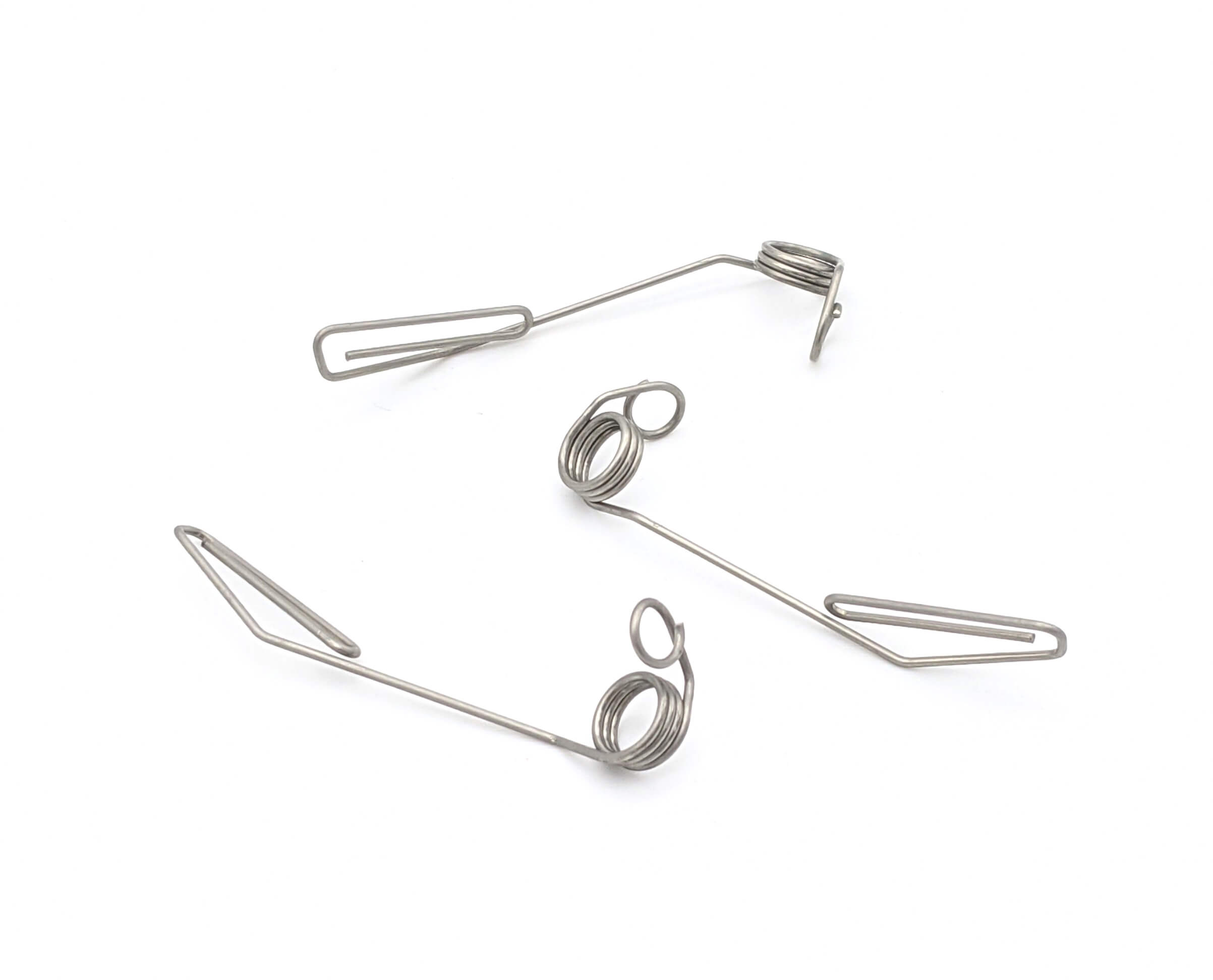Get unique, complex parts easily. No matter your requirements, Chaoyi Spring creates hard-to-produce coil springs and wire forms.
Let us help you create the custom wire form you need, from S-hooks and J-hooks to utility hooks and more.
We work closely with customers across a wide range of industries, helping them design and manufacture made-to-order parts.
Why choose Chaoyi Spring? We prioritize customer-focused collaboration, modern equipment and the latest technology to make your parts per print.
Find the information and guidance you need, from measuring a spring to learning about materials, placing an order and much more.
Have you ever wondered about the hidden force behind a coiled spring, ready to burst into action? That, my friend, is the magic of compressed spring potential energy. This article


Imagine a spring in its natural, relaxed state. Now, picture squeezing it, compressing its coils tightly. As you do this, you are storing energy within the spring. This stored energy, poised for release, is called compressed spring potential energy. It represents the energy an object possesses due to its position or configuration, ready to unleash its power when the spring returns to its original form.

To grasp this concept, think of a stretched rubber band. The more you stretch it, the more potential energy you store. Similarly, the more you compress a spring, the greater the potential energy it holds. This energy is directly proportional to the amount of compression, meaning a tighter squeeze equates to a greater energy reserve.
The relationship between the force you apply to compress a spring and the amount of potential energy stored is beautifully explained by Hooke's Law. This fundamental principle of physics states that the force required to extend or compress a spring is directly proportional to the distance it is stretched or compressed.
This relationship can be expressed mathematically as F = -kx, where F represents the force applied, x denotes the displacement from the spring's equilibrium position, and k is a constant specific to each spring, known as the spring constant. The negative sign signifies that the force exerted by the spring acts in the opposite direction to the displacement.
The potential energy stored in a compressed spring, also known as elastic potential energy, is calculated using the formula PE = 1/2kx². This equation clearly shows that the potential energy is directly proportional to the square of the displacement and the spring constant. In simpler terms, a stiffer spring or a greater compression results in a higher potential energy.
Compressed spring potential energy isn't just a theoretical concept; it's a driving force behind countless everyday objects and technologies. Here are a few captivating examples:
1. Mechanical Clocks: The rhythmic ticking of a mechanical clock is made possible by the precisely controlled release of energy from a wound-up spring. As the spring unwinds, it transfers its stored energy to the gears, driving the clock's hands.
2. Toys: From the simple delight of a jack-in-the-box to the thrilling launch of a toy car, compressed springs bring joy and excitement to playtime. They store energy when compressed and release it to create motion, propelling toys in various directions.
3. Automobiles: Suspension systems in cars utilize springs to absorb shocks from bumpy roads, ensuring a smoother ride. When compressed by a bump, the springs store energy and then release it gradually, minimizing the impact felt by passengers.
4. Trampolines: Ever experienced the exhilarating bounce of a trampoline? You can thank compressed spring potential energy for that! As you land on the trampoline, the springs stretch, storing energy. This energy is then released, propelling you back upwards for another bounce.
The potential of compressed spring potential energy extends far beyond these common applications. Researchers and engineers are continuously exploring innovative ways to harness this energy source for a wide range of future applications, including:
1. Energy Storage: Compressed springs offer a promising avenue for storing energy efficiently. Imagine large-scale spring systems storing energy generated from renewable sources like solar and wind, providing a reliable and sustainable power source.
2. Robotics: Robots could leverage compressed spring potential energy for enhanced agility and efficiency. Springs can be strategically integrated into robotic limbs, providing a burst of power for movements like jumping, running, or lifting heavy objects.
3. Medical Devices: The medical field can also benefit from this versatile energy source. Compressed springs could power prosthetic limbs, offering a more natural and responsive movement for amputees.
Compressed spring potential energy is a powerful and versatile force that plays a crucial role in our lives, from powering everyday objects to shaping cutting-edge technologies. Its applications are as diverse as our imaginations, and as we delve deeper into its potential, we can expect even more groundbreaking innovations to emerge, revolutionizing how we live, work, and play. So, the next time you encounter a coiled spring, take a moment to appreciate the hidden power it holds, a testament to the captivating world of physics and its endless possibilities.
Compressed spring potential energy is a testament to the power of physics, impacting our lives in ways both big and small. As we unlock its full potential, we can look forward to a future where this energy source plays a pivotal role in shaping a more sustainable and technologically advanced world.Browse some of the custom wire forms and springs that we manufacture. Don’t see what you need? We specialize in made-to-order products that meet your application requirements.
Visit Our GalleryNeed a custom wire form or coil spring? We make it work. Fill out the contact form and a representative will respond within 1 business day. If you have a PDF or CAD file, you can submit to request a quote.